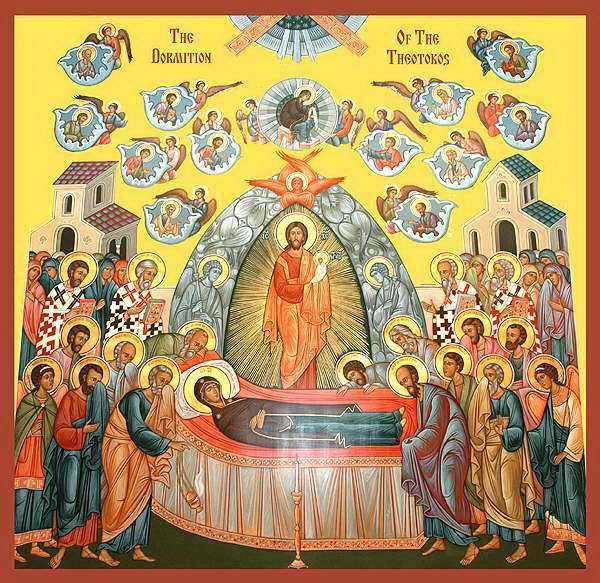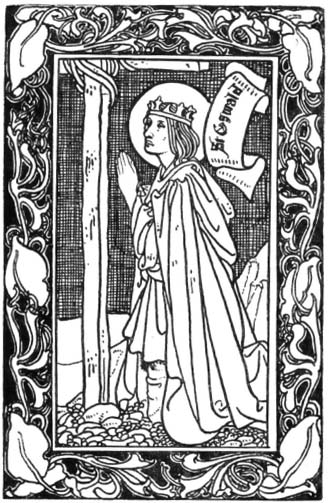
LECTIONARY READINGS
Morning Prayer: Psalm 49; Ecclesiasticus 5:1-10; Luke 12:13-21
Holy Eucharist: Galatians 6:11-end; St. Matthew 6:24-end
Evening Prayer: Psalm 26, 128; Ecclesiasticus 5:8-end; I Timothy 6:1-10
REFLECTION
In only five of the Collects for the Sundays of the Christian year is the Church specifically mentioned, and it is always as “thy Church”. The Church is not ours, but his. The Church is founded upon his authority and made holy by his Spirit. In faith, the Church of God looks to its Head, Jesus Christ, and trusts that his promise will be kept, “Lo I am with you always, even unto the end of the world” (Matt. 28. 20).
The “perpetual mercy” of God is required for the keeping of his Church because perpetual danger threatens it. In the Service of Holy Communion, the priest bids us pray “for the whole state of Christ’s Church militant here on earth”—”militant” because his Church is engaged in a perpetual warfare with the devil and his angels, and the wicked men who work his will until Jesus Christ shall appear in glory at the end of time. The mercy which alone can protect the Church is the mercy of the Cross which is unceasingly shown in accepting Christ’s propitiation (sacrifice) for our sins. In the words of the Epistle, the Church must bear in its body “the marks of the Lord Jesus”. The Church can never be made strong and holy by its sheer numbers, its political influence, or its wealth. Rather, the Church is strong and faithful only when its priests and laity alike are able to say with St. Paul in today’s Epistle: “But God forbid that I should glory, save in the cross of our Lord Jesus Christ, by whom the world is crucified unto me, and I unto the world.” The crucified Christ is the Head of his Church. The central act of worship of his Church is the Holy Communion by which we “proclaim the Lord’s death until he comes again” (I Cor. 11. 26).
In the Collect, we acknowledge that without God’s grace we cannot stand, and we ask that he will keep us from all things hurtful and lead us to all things profitable to our salvation. Today’s Gospel teaches us that we are entirely dependent upon the grace of God. We need grace to protect us from harm, and grace to lead us to all that is good. Trusting in God and him alone, we seek first the Kingdom of God and are assured that we will receive his manifold and abundant blessings and comfort.
Our Christian service must be one of love, purity and singleness of heart. May we resolve to seek first the kingdom of heaven in our lives, glorifying in the Cross of Jesus Christ by whom the world is crucified unto us, and we unto the world.
***from COMMON PRAYER: A Commentary on the Prayer Book Lectionary, Volume 5: Thirteenth Sunday After Trinity to Twenty Sixth Sunday after Trinity (p. 42-43)
St. Peter Publications Inc. Charlottetown, PEI, Canada***
THE COLLECT FOR THE FIFTEENTH SUNDAY AFTER TRINITY
Keep, we beseech thee, O Lord, thy Church with thy perpetual mercy; and, because the frailty of man without thee cannot but fall, keep us ever by thy help from all things hurtful, and lead us to all things profitable to our salvation; througth Jesus Christ our Lord. Amen.
SAINT OF THE DAY
St. Aidan, Bishop and Confessor (d. 651)

The Gospel first came to the northern English in 627, When King Edwin of Northumbria was converted by a mission from Canterbury led by Bishop Paulinus, who established his see at York. Edwin's death in battle in 632 was followed by a severe pagan reaction. A year later, Edwin's exiled nephew Oswald gained the kingdom, and proceeded at once to restore the Christian mission.
During his exile, Oswald had lived at Columba's monastery of Iona, where he had been converted and baptized. Hence he sent to Iona, rather than to Canterbury, for missionaries. The first monk to preach was a man named Corman, who had no success, and returned to Iona to complain that the Northumbrians were a savage and unteachable race. A young monk named Aidan responded, "Perhaps you were too harsh with them, and they might have responded better to a gentler approach." At this, Aidan found himself appointed to lead a second expedition to Northumbria. He centered his work, not at York, but in imitation of his home monastery, on Lindisfarne, an island off the northeast coast of England, now often called Holy Isle.
With his fellow monks and the English youths whom he trained, Aidan restored Christianity in Northumbria, King Oswald often serving as his interpreter, and extended the mission through the midlands as far south as London.
Aidan died at the royal town of Bamboroug (Bamburgh), 31 August, 651. The historian Bede said of him: "He neither sought nor loved anything of this world, but delighted in distributing immediately to the poor whatever was given him by kings or rich men of the world. He traversed both town and country on foot, never on horseback, unless compelled by some urgent necessity. Wherever on his way he saw any, either rich or poor, he invited them, if pagans, to embrace the mystery of the faith; or if they were believers, he sought to strengthen them in their faith and stir them up by words and actions to alms and good works."














